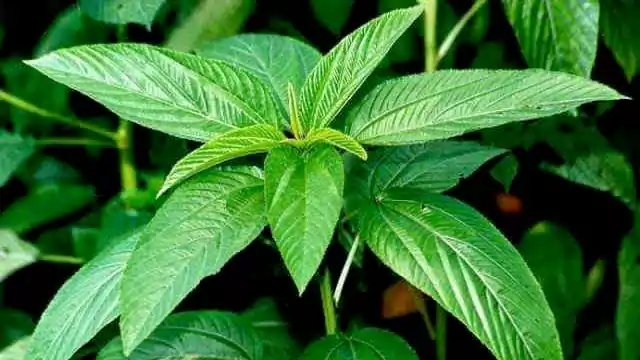Jute leaf, often referred to as “molokhia” in various cultures, is a green leafy vegetable derived from the Corchorus plant, primarily known for its fibrous stem used in the production of jute fiber. While the fiber is celebrated globally for its sustainable qualities, the leaf is an underrated gem that offers an array of health benefits, making it an essential component in both culinary and medicinal domains. This article delves into the nutritional, medicinal, and cosmetic properties of jute leaf, highlighting its significance in various industries.
Nutritional Profile of Jute Leaf: A Superfood in Disguise
Jute leaf is a nutritional powerhouse, packed with essential vitamins, minerals, and antioxidants. According to research, jute leaf is particularly rich in vitamins A, C, E, and K. A study published in the Journal of Food Composition and Analysis noted that jute leaf contains 2.5% protein, 6.6% carbohydrates, and 1.8% fat. The leaf also provides substantial amounts of dietary fiber, contributing to digestive health. Vitamin A: Essential for vision, immune function, and reproduction. Jute leaf provides 2510 IU per 100 grams, making it an excellent source of beta- carotene. Vitamin C: Known for its antioxidant properties, it boosts the immune system and aids in skin health. Jute leaf contains 64 mg per 100 grams. Iron: Jute leaf provides about 2.7 mg of iron per 100 grams, which is crucial for hemoglobin production and oxygen transport in the body. Calcium: With 210 mg per 100 grams, jute leaf supports bone health, making it a viable dietary addition for those at risk of osteoporosis. These nutrients collectively make jute leaf a potent food source, particularly in regions where nutritional deficiencies are prevalent. Incorporating jute leaf into the diet can help combat malnutrition, especially in developing countries where it is already a staple.
Medicinal Benefits: A Natural Remedy with Scientific
Backing
Jute leaf is not only a nutritional marvel but also possesses significant medicinal properties. Traditionally used in various cultures for its therapeutic effects, modern science is beginning to catch up with these ancient practices. The leaf exhibits anti-inflammatory, antimicrobial, and antioxidant activities, making it a valuable resource in traditional medicine. Anti-inflammatory Properties: A study in the Journal of Ethnopharmacology highlighted the anti-inflammatory effects of jute leaf extract, which can be attributed to the presence of flavonoids and saponins. These compounds help reduce inflammation in the body, offering relief from conditions like arthritis and other inflammatory disorders. Antimicrobial Activity: Jute leaf has been found to possess antimicrobial properties against a variety of pathogens. Research published in the African Journal of Biotechnology demonstrated that extracts of jute leaf showed significant antibacterial activity against E. coli and Staphylococcus aureus, two common bacteria responsible for various infections. Antioxidant Benefits: The high levels of antioxidants, particularly vitamins A and C, in jute leaf help neutralize free radicals in the body. This not only boosts the immune system but also plays a role in preventing chronic diseases such as cancer and heart disease. Moreover, jute leaf has been traditionally used to treat ailments like fever, stomach pain, and colds. In regions like Africa and the Middle East, it is a common remedy for digestive issues, thanks to its mucilaginous texture, which soothes the gastrointestinal tract.
Culinary Uses: A Staple in Global Cuisines
Jute leaf is a versatile ingredient in the culinary world, especially in African, Middle Eastern, and Southeast Asian cuisines. Its slimy texture when cooked is reminiscent of okra, making it a unique addition to soups and stews. Molokhia Soup: Perhaps the most famous dish featuring jute leaf is Molokhia, a traditional Egyptian soup. This dish is not only delicious but also nutrient- dense, providing a significant portion of daily vitamins and minerals in a single serving. Nigerian Ewedu Soup: In Nigeria, jute leaf is a key ingredient in Ewedu soup, often served with fufu or pounded yam. This dish is celebrated for its health benefits and is a staple in many households. Asian Cuisine: In Japan and the Philippines, jute leaf is commonly used in salads, stir-fries, and as a garnish for various dishes. The leaf’s culinary versatility, coupled with its health benefits, makes it a valuable ingredient in both traditional and modern cuisine. Its inclusion in everyday meals can enhance nutritional intake and support overall health.
Herbal Beauty and Skincare: Nature’s Gift to Radiant Skin
Jute leaf’s benefits extend beyond nutrition and medicine, reaching into the realm of beauty and skincare. The high antioxidant content, particularly vitamins A and E, makes jute leaf an excellent natural remedy for skin care.
Anti-Aging: The antioxidants in jute leaf combat free radicals, which are responsible for premature aging. Regular consumption or topical application of jute leaf extract can help reduce wrinkles and fine lines, promoting a youthful appearance. Moisturizing Properties: The mucilage in jute leaf acts as a natural moisturizer, making it a popular ingredient in herbal beauty treatments. It can be used to
soothe dry and irritated skin, providing hydration and promoting skin elasticity. Treatment for Skin Conditions: Traditional medicine has utilized jute leaf for treating various skin conditions such as eczema, rashes, and sunburns. Its anti-inflammatory properties help calm irritated skin and reduce redness and swelling. The global skincare industry is increasingly looking towards natural and organic
ingredients, and jute leaf’s multifaceted benefits position it as a potential key player in this market. As consumers become more conscious of what they apply to their skin, the demand for plant-based skincare products is expected to rise, with jute leaf being a promising addition.
Conclusion: A Green Treasure with Endless Possibilities Jute leaf is a multifaceted green treasure, offering unparalleled benefits in nutrition, medicine, and beauty. As a super food, it provides essential vitamins and minerals that support overall health. In the medicinal realm, its anti- inflammatory, antimicrobial, and antioxidant properties make it a powerful natural remedy. Furthermore, its potential in the skincare industry as a natural anti-aging and moisturizing agent highlights its versatility. As awareness of jute leaf’s benefits continues to grow, its popularity is expected to surge, not only in regions where it is traditionally consumed but globally. Incorporating jute leaf into daily life, whether through diet, medicine, or skincare, offers a holistic approach to health and well-being, making it an invaluable resource for a healthier future.


 Jute Rugs
Jute Rugs